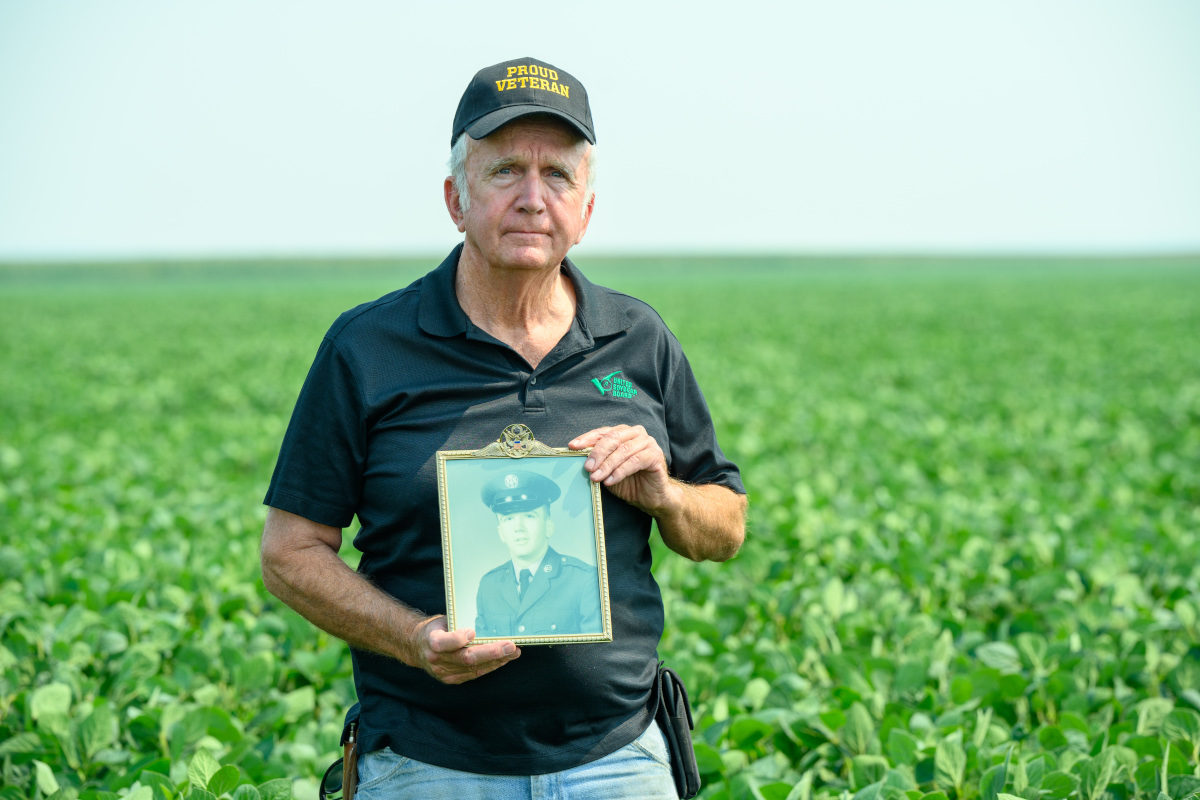From the Ranks to the Farm, Farmer-Leaders Share their Military Experiences

On the 11th day of the 11th month at the 11th hour of 1918, peace blanketed the world, ending World War I. The war had claimed the lives of 20 million people.
In November 1919, President Wilson proclaimed Nov. 11 as the first commemoration of Armistice Day.
“To us in America, the reflections of Armistice Day will be filled with solemn pride in the heroism of those who died in the country’s service and with gratitude for the victory, both because of the thing from which it has freed us and because of the opportunity it has given America to show her sympathy with peace and justice in the councils of the nations,” Wilson proclaimed.
In 1954, the word “Armistice” was struck and “Veterans” was inserted by Congress, making Nov. 11 a day to honor United States veterans of all wars. Veterans Day is a time to pay respect to those who have served. For one day, the country stands united in respect for our veterans.
It is more than a one-day observance for Jim Domagalski, Bill Zurn and millions of other veterans. It is a recognition of service, sacrifice and tradition for the men and women who have served the U.S.
“Every day, I put the flag up in the backyard and say a little something for troops that are in harm’s way,” says Domagalski, a checkoff farmer-leader from Columbus, Michigan.
He enlisted in the Michigan National Guard in 1966 as the Vietnam War was escalating. As a cook in the National Guard working 24-hour shifts, Domagalski fed about 250 service members.
Zurn, a checkoff farmer-leader from Callaway, Minnesota, enlisted in the North Dakota Air National Guard in 1968. For 19 years, he worked in the supply squadron and about eight years in civil engineering as a site development supervisor at various domestic Air Force bases.
“Whatever Uncle Sam wanted, we did,” Zurn says. “At first, you start out and you are at the bottom of the barrel. You’ve got mosquito wings and, eventually, you move up.”
Both veterans credit their success in the military to the work ethic and values learned on the farm at a young age. Domagalski grew up on a dairy farm, and Zurn worked with his father and grandfather on a diverse animal and row crop farm.
“Working every day on the farm helped me with PT [physical training],” Domagalski says. “I could climb a rope straight up without using my legs. Working on the farm gave me that work ethic to help myself and other guys.”
Zurn says doing chores and making decisions on the farm helped him navigate military life.
“You have to do a lot of different things on the farm,” Zurn says. “You have to be an electrician, you have to pour cement and you have to know where water runs in the fields. So that helps when you are working in the military.”
Both farmers are proud of the fact that they had children who followed in their footsteps and enlisted in the Army, Navy and Air Force.
“Our family has a history of service,” Zurn says. “I have a cousin who went to Korea, and he is still over there. He got killed in Korea in 1952. Freedom doesn’t come cheap.”
Veterans Day is a reminder of the service and heroism our veterans lived. It is also a time to express gratitude for their sacrifices. Domagalski says you can celebrate veterans and active-duty service men and women by doing little things every day.
“A small thing like buying a cup of coffee for a service man or woman can make them feel respected,” Domagalski says.
